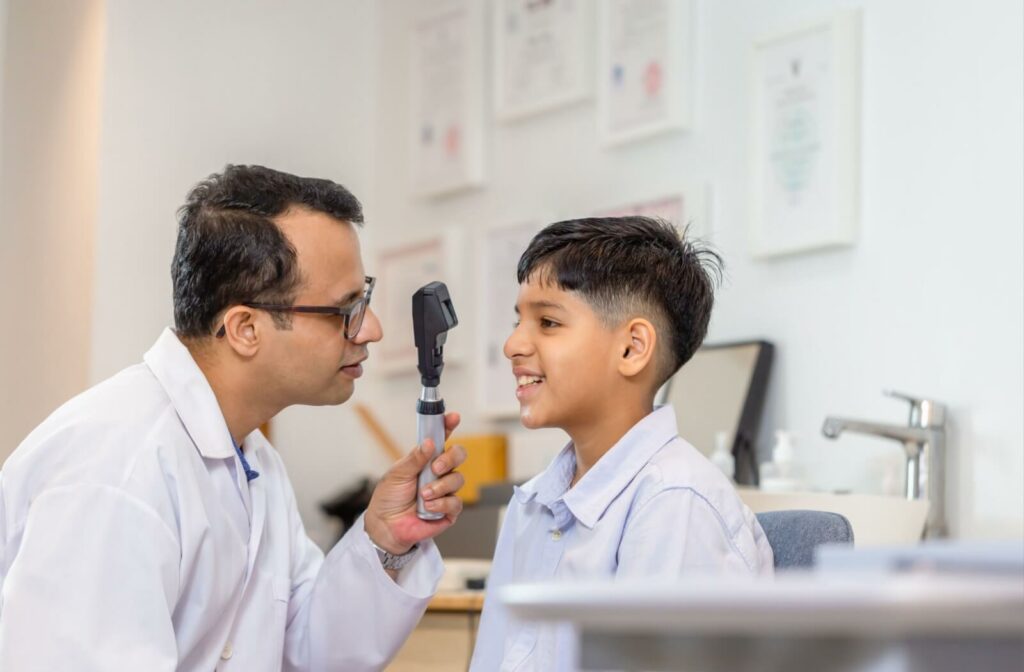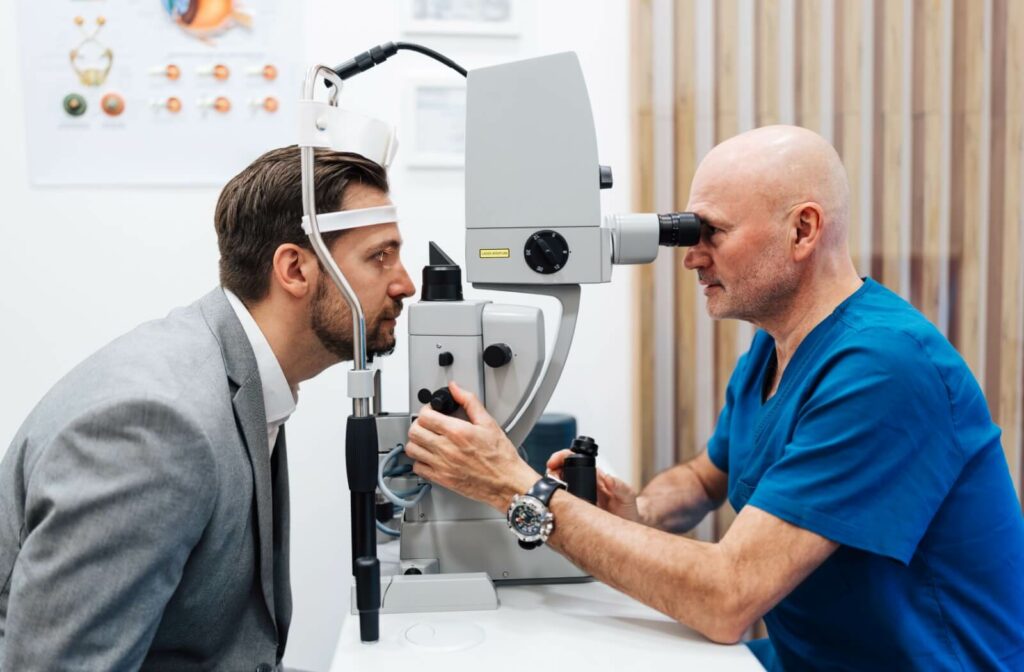Regular eye exams are one of the simplest ways to protect your vision, yet many people put them off because they’re unsure of what to expect. Knowing how long an exam takes can help you plan ahead and feel more comfortable walking into your appointment.
Most eye exams take between 30 minutes and an hour, but the exact length depends on your age, medical history, and whether you need additional testing. These visits not only check your current prescription, but also serve as an early warning system for eye diseases and even some overall health issues like high blood pressure or diabetes.
Types of Eye Exams & Their Duration
Comprehensive Eye Exams
A comprehensive eye exam is the standard checkup most people think of when scheduling an appointment. This thorough evaluation typically takes 30–60 minutes and includes:
- Medical history review to assess your current and future eye health risks
- Visual acuity testing to determine how clearly you see at various distances
- Refraction testing to determine your exact prescription needs
- Eye pressure measurement to screen for glaucoma
- Pupil dilation to examine the back of your eyes if needed
- Disease screening for conditions like macular degeneration, diabetic retinopathy, and retinal detachment
During your comprehensive exam, your eye doctor will also evaluate your optical system and discuss any vision concerns you may have.
Contact Lens Exam
If you wear contacts or want to start wearing them, you’ll need a contact lens exam in addition to your comprehensive eye exam. This fitting typically adds 15-30 minutes to your appointment and includes:
- Corneal measurements to determine the best lens size and curve
- Tear film evaluation to ensure you have adequate moisture for comfortable lens wear
- Trial lens fitting to test how the lenses feel and perform
- A contact lens prescription, which differs from your eyeglass prescription
You’ll also receive instruction on proper lens insertion, removal, and care. A follow-up appointment is usually scheduled within a week to ensure you’re adjusting well to your new lenses.
Additional Testing
Depending on your health needs, you might require additional testing:
- Digital retinal imaging for detailed documentation of eye health
- Computer vision syndrome evaluation for those experiencing digital eye strain
- Diabetic eye exams with extended screening for diabetes-related complications
- Macular degeneration screening using diagnostic imaging
These tests can add 15-45 minutes to your appointment, depending on complexity.
Factors That Affect Exam Length
Several variables may influence how long your eye appointment will take:
- Age: Children’s exams may take longer due to cooperation challenges and different testing needs. Senior exams often require additional disease screening and may involve more detailed health history discussions.
- Medical history: Patients with diabetes, high blood pressure, or family history of eye disease typically need more comprehensive screening, extending exam time.
- Symptoms and concerns: If you’re experiencing vision changes, eye discomfort, or other symptoms, your eye doctor may need additional time for diagnostic testing.
- Previous eye problems: Ongoing monitoring of conditions like glaucoma or macular degeneration requires extra time for measurements and comparisons with previous results.
- Prescription Changes: Significant changes in vision may require additional refraction testing, so that you can get the correction you need.
All of these factors mean your exam time may vary, but the goal is always a thorough check to protect your vision.

What to Expect During Your Eye Exam
Before Your Appointment
Proper preparation helps your exam runs smoothly:
- Contact your insurance provider to understand your coverage
- Bring your current glasses, contacts, and contact lens case
- Compile a list of current medications and supplements
- Gather family medical history information, especially eye-related conditions
- Prepare questions about your vision concerns
During Your Exam
Your eye doctor will evaluate different aspects of your vision and eye health, including some of the following:
- Initial consultation reviewing your health history and current concerns
- Visual acuity testing using the familiar eye chart
- Refraction testing to determine your prescription
- Eye movement and coordination tests
- Peripheral vision assessment
- Eye pressure measurement
- External eye examination using a slit lamp microscope
- Internal eye health evaluation (dilation if needed)
After Your Exam
Following your appointment, especially if your eyes were dilated, you may experience:
- Blurry vision for several hours
- Light sensitivity
- Difficulty focusing on close objects
To protect your eyes after dilation:
- Wear sunglasses outdoors
- Avoid driving until vision clears
- Limit screen time and reading
Making Eye Care a Priority
Making time for an eye exam is an easy way to protect your vision and overall health. Most visits take just 30–60 minutes, giving your optometrist the chance to check for changes in your eyesight and catch potential issues early.
We provide thorough, comfortable exams for patients of all ages, using modern technology to keep your eyes healthy. Taking the time to get your eyes checked can make a lasting difference for your vision in the future. So schedule your appointment with our team at Fuquay Eye Care today.





